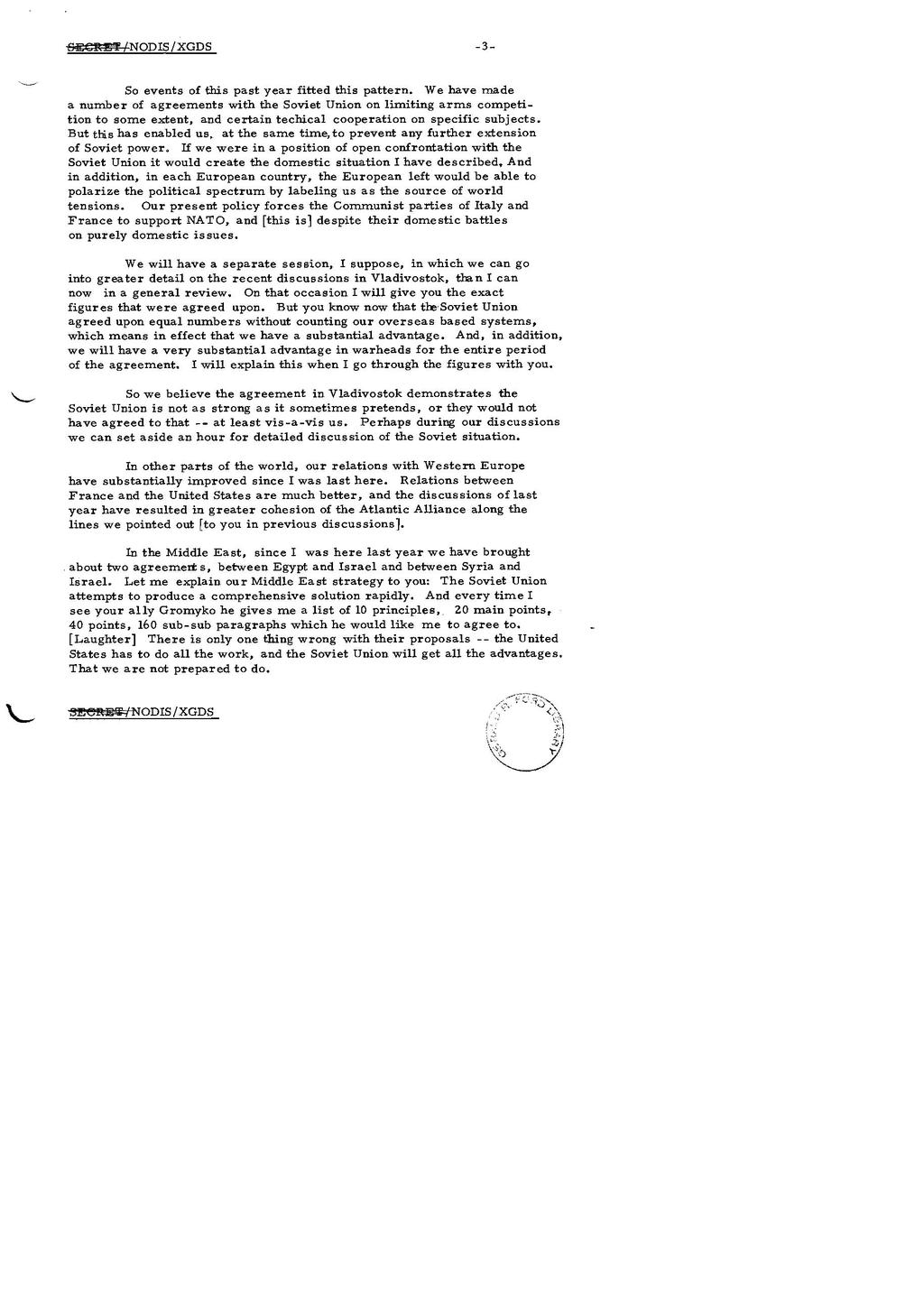So events of this past year fitted this pattern. We have made a number of agreements with the Soviet Union on limiting arms competition to some extent, and certain techical cooperation on specific subjects. But this has enabled us, at the same time, to prevent any further extension of Soviet power. If we were in a position of open confrontation with the Soviet Union it would create the domestic situation I have described. And in addition, in each European country, the European left would be able to polarize the political spectrum by labeling us as the source of world tensions. Our present policy forces the Communist parties of Italy and France to support NATO, and [this is] despite their domestic battles on purely domestic issues.
We will have a separate session, I suppose, in which we can go into greater detail on the recent discussions in Vladivostok, than I can now in a general review. On that occasion I will give you the exact figures that were agreed upon. But you know now that the Soviet Union agreed upon equal numbers without counting our overseas based systems, which means in effect that we have a substantial advantage. And, in addition, we will have a very substantial advantage in warheads for the entire period of the agreement. I will explain this when I go through the figures with you.
So we believe the agreement in Vladivostok demonstrates the Soviet Union is not as strong as it sometimes pretends, or they would not have agreed to that -- at least vis-a-vis us. Perhaps during our discussions we can set aside an hour for detailed discussion of the Soviet situation.
In other parts of the world, our relations with Western Europe have substantially improved since I was last here. Relations between France and the United States are much better, and the discussions of last year have resulted in greater cohesion of the Atlantic Alliance along the lines we pointed out [to you in previous discussions].
In the Middle East, since I was here last year we have brought about two agreements, between Egypt and Israel and between Syria and Israel. Let me explain our Middle East strategy to you: The Soviet Union attempts to produce a comprehensive solution rapidly. And every time I see your ally Gromyko he gives me a list of 10 principles, 20 main points, 40 points, 160 sub-sub paragraphs which he would like me to agree to. [Laughter] There is only one thing wrong with their proposals -- the United States has to do all the work, and the Soviet Union will get all the advantages. That we are not prepared to do.
SECRET/NODIS/XGDS
